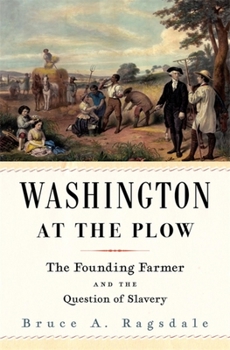Washington at the Plow: The Founding Farmer and the Question of Slavery
Select Format
Select Condition 
Book Overview
Winner of the George Washington Prize
A fresh, original look at George Washington as an innovative land manager whose singular passion for farming would unexpectedly lead him to reject slavery.
Format:Hardcover
Language:English
ISBN:0674246381
ISBN13:9780674246386
Release Date:October 2021
Publisher:Belknap Press
Length:368 Pages
Weight:1.65 lbs.
Dimensions:1.3" x 6.4" x 9.3"
Customer Reviews
0 rating





